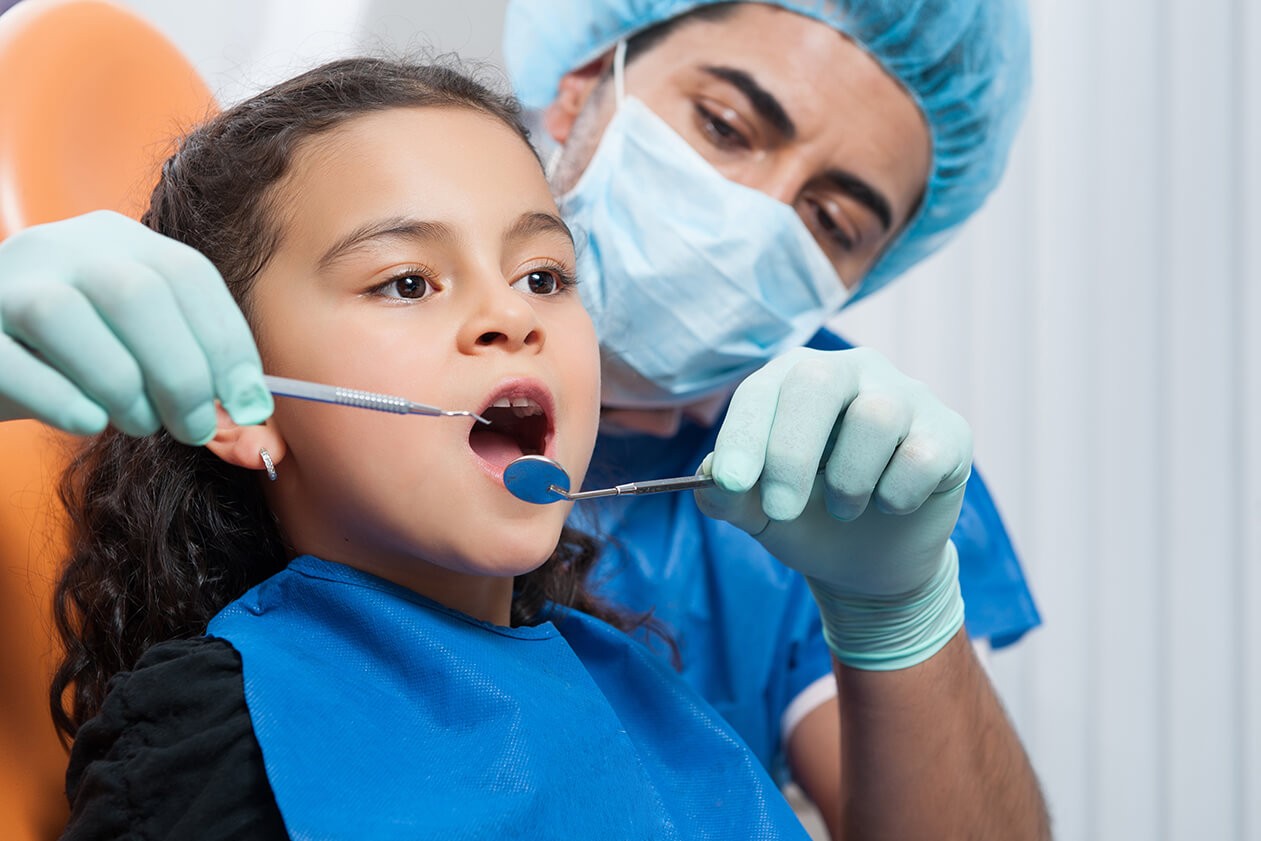Caring for a child’s teeth from an early age is essential for ensuring lifelong oral health. Pediatric dentistry focuses on the unique dental needs of infants, children, and adolescents, providing the foundation for strong, healthy teeth and gums. This guide covers everything parents need to know about pediatric dentistry, from the importance of early dental care to tips on maintaining good oral hygiene for children.
Why Pediatric Dentistry is Important
Pediatric dentistry is a specialized field that focuses on the oral health of children from infancy through adolescence. Children’s teeth are more susceptible to decay and other dental issues due to their developing enamel and dietary habits. Early dental visits and preventive care can help:
- Detect and treat cavities early.
- Teach children good oral hygiene habits.
- Monitor the development of teeth and jaws.
- Prevent long-term dental problems.
By addressing dental issues early, pediatric orthodontist waterford help ensure children grow up with healthy smiles.
When Should Your Child First See a Dentist?
The American Academy of Pediatric Dentistry (AAPD) recommends that children have their first dental visit by their first birthday or within six months of the eruption of their first tooth. This initial visit allows the dentist to:
- Examine your child’s teeth and gums.
- Provide guidance on oral hygiene practices.
- Discuss dietary recommendations for healthy teeth.
- Identify potential dental problems early.
Starting dental visits early also helps children become familiar with the dentist’s office, reducing anxiety about future appointments.
Common Pediatric Dental Issues
Children are prone to certain dental problems due to their diet, habits, and developing teeth. Here are some common issues:
- Tooth Decay (Cavities):
- Caused by sugary foods and drinks.
- Poor brushing habits exacerbate the problem.
- Teething Discomfort:
- Can cause irritability and sore gums.
- Teething rings or cool compresses can help.
- Thumb Sucking:
- Prolonged thumb sucking can affect tooth alignment and jaw development.
- Early Tooth Loss:
- Caused by decay or injury.
- Can lead to misalignment of permanent teeth.
- Gum Disease:
- Improper brushing can cause gingivitis, even in children.
Understanding these issues and addressing them early can prevent long-term complications.
How to Care for Your Child’s Teeth at Every Stage
Caring for a child’s teeth involves different practices at various stages of development.
1. Infants (0-12 Months):
- Before Teeth Erupt: Wipe your baby’s gums with a clean, damp cloth after feeding.
- After Teeth Erupt: Use a soft-bristled baby toothbrush and a tiny smear of fluoride toothpaste.
- Avoid Baby Bottle Tooth Decay: Do not let your baby sleep with a bottle of milk or juice.
2. Toddlers (1-3 Years):
- Brush twice daily with a small amount of fluoride toothpaste (pea-sized for toddlers).
- Introduce flossing once two teeth touch.
- Avoid sugary snacks and drinks.
3. Preschoolers (4-6 Years):
- Continue brushing twice daily and start teaching your child to brush independently under supervision.
- Use fun tools like colorful toothbrushes or flavored toothpaste to make brushing enjoyable.
- Schedule regular dental check-ups.
4. School-Aged Children (7-12 Years):
- Encourage proper brushing and flossing techniques.
- Provide a balanced diet rich in calcium and vitamins.
- Use mouthguards for sports to prevent injuries.
5. Teenagers (13-18 Years):
- Emphasize the importance of maintaining good oral hygiene despite busy schedules.
- Address orthodontic concerns, such as braces or retainers.
- Discourage habits like nail-biting or using teeth to open packages.
Diet and Nutrition for Healthy Teeth
A balanced diet is essential for a child’s oral health. Foods rich in calcium, phosphates, and vitamins strengthen teeth and gums. Here are some dietary tips:
- Best Foods for Healthy Teeth:
- Dairy products like milk, cheese, and yogurt.
- Leafy greens and vegetables like spinach and kale.
- Fruits with low sugar content, such as apples and berries.
- Nuts and seeds for essential minerals.
- Foods to Avoid:
- Sugary snacks like candy and cookies.
- Sticky foods like caramel and gummies.
- Acidic beverages like sodas and citrus juices.
Encouraging your child to drink water instead of sugary drinks can also significantly reduce the risk of cavities.
Tips for Making Oral Hygiene Fun
Getting children to brush and floss their teeth can be challenging. Here are some ways to make oral hygiene more enjoyable:
- Let your child pick out their toothbrush and toothpaste.
- Use apps or timers to track brushing for two minutes.
- Create a reward system for consistent oral hygiene habits.
- Brush your teeth together to model good behavior.
By turning oral hygiene into a fun routine, you can instill habits that last a lifetime.
The Role of Fluoride in Pediatric Dentistry
Fluoride is a natural mineral that strengthens tooth enamel and helps prevent decay. Most children benefit from fluoride through:
- Toothpaste: Ensure your child’s toothpaste contains fluoride.
- Drinking Water: Many communities have fluoridated tap water.
- Professional Treatments: Pediatric dentists can provide fluoride varnishes or gels during check-ups.
However, excessive fluoride can cause fluorosis, so it’s essential to use the correct amount of toothpaste and monitor fluoride intake.
Orthodontic Care for Children
Orthodontic issues often become apparent during childhood. Common problems include crooked teeth, overbites, underbites, and crowding. Early orthodontic evaluation, usually around age 7, can help:
- Identify problems early.
- Plan for braces or other treatments if needed.
- Prevent more severe alignment issues later in life.
Some children may need early interventions like expanders or retainers to guide jaw growth and tooth alignment.
Preventing Dental Emergencies
Accidents happen, especially with active children. Here are some tips to prevent and handle dental emergencies:
- Use Mouthguards: Protect your child’s teeth during sports.
- Childproof Your Home: Prevent falls and injuries by securing furniture and sharp edges.
- Know First Aid for Dental Emergencies:
- For a knocked-out tooth, rinse it with water and try to reinsert it or store it in milk.
- For a chipped tooth, rinse the mouth and apply a cold compress to reduce swelling.
Regular dental visits can also help identify weak teeth or gums that may be prone to injury.
The Importance of Regular Dental Check-Ups
Scheduling routine dental check-ups every six months is crucial for maintaining your child’s oral health. These visits include:
- Professional cleanings to remove plaque and tartar.
- Examinations to detect cavities or gum disease.
- Guidance on oral hygiene practices and diet.
Regular visits also help children become comfortable with dental care, reducing anxiety about future appointments.
Common Myths About Pediatric Dentistry
There are many misconceptions about children’s oral health. Let’s debunk some of the most common myths:
- Myth: Baby teeth don’t matter because they fall out.
- Truth: Baby teeth hold space for permanent teeth and play a critical role in speech and chewing.
- Myth: Kids don’t need to floss.
- Truth: Flossing removes food particles and plaque between teeth, preventing cavities.
- Myth: Sugar is the only cause of cavities.
- Truth: While sugar contributes to decay, poor oral hygiene and certain bacteria are also factors.
Understanding the facts can help parents make informed decisions about their child’s dental care.
How to Choose the Right Pediatric Dentist
Finding the right dentist for your child is an important decision. Consider the following factors:
- Experience and Credentials: Look for a dentist who specializes in pediatric care.
- Child-Friendly Environment: A welcoming office with toys and entertainment can ease anxiety.
- Communication Skills: A good pediatric dentist can explain procedures in a way children understand.
Ask for recommendations from friends or family, and schedule a consultation to ensure the dentist is a good fit for your child.
Conclusion
Pediatric dentistry is vital for laying the foundation of lifelong oral health. By starting early, maintaining good oral hygiene habits, and ensuring regular dental visits, parents can help their children grow up with healthy, confident smiles. With proper care and guidance, you can protect your child’s teeth and set them on a path to optimal oral health.






